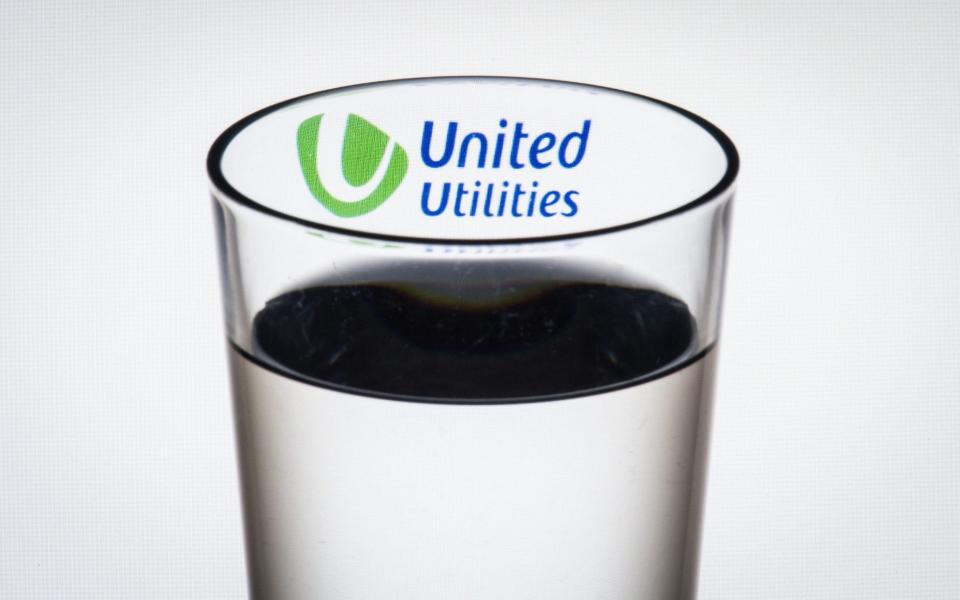Questor: United Utilities offers relative safety amid soaring inflation and war in Ukraine. Buy

The outlook for investors is more precarious than the stock market’s recent performance suggests.
While the FTSE 100 is 2pc higher than the level at which it began the year following its recent recovery, investors face several challenges that could limit the returns from their portfolio in the coming months.
Notably, inflation stands at its highest level since 1992. This will increase costs for almost all businesses. Firms that cannot pass their rapidly rising costs on to customers in the form of higher prices will inevitably experience squeezed margins and lower profits, with gloomy consequences for their share price.
But companies such as water services business United Utilities could become increasingly attractive.
The prices it charges are linked to inflation. This means it could offer protection at a time when the Bank of England expects inflation to reach 8pc over the next couple of months.
Investors face other problems associated with rapidly rising prices. For example, the cost-of-living crisis is widely expected to worsen as essential household expenditure, such as on utility bills, rises. This will almost certainly leave consumers with less discretionary income and this could dampen demand for a wide range of products and services.
Firms that sell non-essential goods and services could be most affected by weaker consumer spending.
United Utilities, by contrast, provides a basic necessity. And around 70pc of its customers currently pay by direct debit. This is one of the highest figures in the industry and gives it relatively high certainty that it will collect the money due.
Rampant inflation should, in theory at least, also lead to higher interest rates.
Although the Bank of England may decide to prioritise growth over price stability and retain a dovish stance to support the economy, the full impact of recent interest rate rises is unlikely to have yet been felt because of time lags. Firms whose fortunes are tied to the economic outlook, by contrast with United Utilities’ defensive profile, could struggle amid more challenging trading conditions.
Separately, investors face ongoing risks associated with the war in Ukraine. The full economic impact remains unclear, although the war seems likely to dampen global growth prospects.
This could further strengthen the appeal of defensive firms that are less affected by the economic outlook. Utility companies could be viewed as a safe haven during periods of extreme stock market volatility.
United Utilities is also attractive from an income perspective. Its yield of 4pc beats the FTSE 100’s 3.2pc and the company aims to increase its dividends at the same rate as the “CPIH” version of the consumer prices index including owner occupiers’ housing costs (CPIH). This is the Office for National Statistics’ preferred inflation measure and currently stands at 5.5pc.
Of course, United Utilities should not be viewed as a risk-free investment. Higher inflation has already caused the amount of interest it pays on its index-linked debt to rise.
Furthermore, its limited reliance on the economy’s performance means that investors do not stand to benefit from an improving long-term economic outlook. This could mean it does not pique the interest of investors with a higher risk appetite.
Since this column advised readers to avoid the stock in November 2020, it has risen roughly in line with the FTSE 100 to post a gain of 18.6pc.
Now, though, its defensive characteristics and relative capacity to overcome a period of sustained high inflation make it a far more relevant investment in an uncertain geopolitical and economic environment.
In Questor’s view, the stock market’s recent performance underplays the risks that currently face investors. Adopting a prudent stance that includes holding relatively stable firms such as United Utilities could be a sensible response that pays off over the long run.
Questor says: buy
Ticker: UU
Share price at close: £10.89
Read the latest Questor column on telegraph.co.uk every Sunday, Tuesday, Wednesday, Thursday and Friday from 5am.
Read Questor’s rules of investment before you follow our tips.

 Yahoo Finance
Yahoo Finance 